International Business Seminar Series

The International Business Seminar Series is a series of events organized by the Department of International Business of the ZHAW School of Management and Law, focusing on cutting edge research in international business, economics, management, finance, and strategy.
Current Event
Business Strategy Development via Circular Economy Innovation

4 December 2025
12.30 - 1.30 pm
SW 221 / Online
In this session of the International Business Seminar Series, Dr. Jenni Kaipainen will examine a new era of strategy and innovation research: companies are now finding themselves compelled to take into account the transition to a circular economy and its strategic implications for their business activities. But which strategies are the right ones for this new age of circularity?
Previous Events
Law, Capital, and Voice: African Media Joint Stock Companies in the Cape Colony, 1892-1909

12 November 2025
In this session of the International Business Seminar Series, Dr. Lloyd Maphosa examined how Africans challenged colonial rule in the early twentieth-century Cape Colony. He presented his view on African media companies as social enterprises that adopted corporate law to create alternative platforms for political mobilisation.
Corporate Democratic Action: Business Engagement in Times of Democratic Backsliding

21 October 2025
In this session of the International Business Seminar Series, Dr. Benedikt Kapteina investigated how companies respond when democratic norms are challenged. He looked at the surprising ways some firms take on a civic role beyond their usual business concerns.
Crises Unbound: Institutions, Occupational Groups and the Construction of Omnicrises

1 October 2025
In this session of the International Business Seminar Series, Prof. Dr. Maxim Voronov discussed omnicrises — large-scale disruptions that cross institutional boundaries and unsettle everyday life. He showed how struggles over expertise influence how these crises grow and how they are resolved, offering new perspectives on resilience and governance in uncertain times.
Business as Usual? Datafication and its Discontents with Predatory Play in the Game Industry

4 September 2025
In this session of the International Business Seminar Series, Prof. Dr. Florence Chee explored how data used to train AI systems is gathered and monetized, with a focus on ethical dilemmas in game design. Drawing from a technocultural perspective, her research highlights the risks of exploitative data practices – especially for vulnerable communities – and urges greater accountability in digital spaces where trust and consent are often overlooked.
Exit, Voice, Loyalty and Cynicism: Factory Workers’ Response to CSR Decoupling in Garment Supply Chains

5 June 2025
In this session of the International Business Seminar Series, Prof. Dr. Valentina Carbone examined how supply chain workers navigate substandard labor conditions caused by CSR decoupling. Drawing on interviews from Vietnam’s garment industry, she introduced a dynamic framework based on Hirschman’s exit, voice, and loyalty model to explain when workers comply or resist. The presented study highlights the overlooked agency of factory-level workers and calls for a more human-centered approach to sustainable supply chain management.
CEO Compensation, Diversity in Multinational Enterprises, and Innovation Ambidexterity: Evidence from the Global Pharmaceutical Industry

4 June 2025
In this session of the International Business Seminar Series, Prof. Dr. Ziko Konwar examined how CEO incentives and international diversity influence innovation strategies in multinational enterprises. Challenging traditional views, he highlighted the role of leadership and global diversity in balancing internal R&D with external technology acquisition.
Rethinking Grand Challenges: Public Sector Disaster Insurance and Climate Adaptation in Switzerland

22 May 2025
In this session of the International Business Seminar Series, Prof. Eugenia Cacciatori challenged the dominant view that Cross-Sectoral Partnerships are the best response to grand challenges. Drawing on qualitative data from the Swiss disaster insurance system, she showed how public sector monopolies can successfully drive climate adaptation. The presented study urges a rethink of the public sector’s role and offers a new framework for addressing complex societal problems.
Caught Between the Fronts: A Legitimacy-Based View on Western Firms’ Response to the Ukraine War

10 April 2025
In this session of the International Business Seminar Series, Prof. Georg Wernicke explored how firms react when a foreign country becomes politically delegitimized. Using Russia’s invasion of Ukraine as a case study, he examined how legitimacy threats drive firms' decisions to exit and whether they redirect business elsewhere.
Entanglement of Process and Content in Strategic Sensemaking

26 March 2025
In this session of the International Business Seminar Series, Prof. David Seidl explored the dynamic interplay between strategy process and content in strategic planning. Through a longitudinal case study, he revealed how sensemaking shapes strategic outcomes, offering fresh insights into the hidden influences that drive strategy development.
Does Trade Competition with the United States Influence CO2 Emissions in China?

20 February 2025
In this session of the International Business Seminar Series, Prof. Mihai Mutascu explored the impact of U.S.-China trade competition on environmental sustainability, shed light on how economic shifts had influenced China’s CO2 emissions, and offered new perspectives on the link between global trade and climate change.
Unpacking the Internal Dynamics of Corporate Social Responsibility (CSR) Implementation

6 February 2025
In this session of the International Business Seminar Series, we explored an exciting connection together with Prof. David Risi: the influence of CSR managers and resources on the implementation of Corporate Social Responsibility (CSR), particularly in Swiss financial institutions.
Corporate targeting and responses to online social activism: What is the role of non-human bots?

5 December 2024
In this session of the International Business Seminar Series, Prof. Dr. Forrest S. Briscoe invited us to explore a compelling question: How are AI-driven social bots reshaping corporate responses to online activism?
Accuracy-Versus-Fairness Tradeoffs in Algorithm-Based Personnel Selection

21 November 2024
In this session of the International Business Seminar Series, Ulrich Leicht-Deobald took a fascinating look at innovations in Human Resources: Algorithms are increasingly determining companies' personnel selection. But is the process always fair?
Erosion to Rejuvenation: Corporate Political Activities in Weak Institutional Environments

10 October 2024
In this session of the International Business Seminar Series, Tazeeb S. Rajwani from the University of Surrey illustrated how multinational companies can operate successfully in weak institutional environments. His unique study presents a novel approach to strategic adaptation and transformation of corporate policy activities (CPA).
Electing to Defer: Political Real Options and Project Investment Financing Around the World

3 September 2024
Elections create political uncertainty with alternative outcomes that are important for investors in infrastructure projects. In the presentation of the International Business Seminar Series, Paul M. Vaaler presented a framework for "political real options": This can explain when investors are more inclined to proceed with the financial close of their projects before an election or wait for the outcome.
Global Entry: Reconceptualizing Multinational Investments Between Governments and Firms

21 June 2024
Multinational investment decisions are often viewed solely from the perspective of companies, but governments also play a crucial role. In her research, Prof. Sinziana Dorobantu demonstrates how a two-sided framework takes into account the goals of both companies and governments.
CollAIborate – Fostering AI in Research and Education

30 May 2024
What do we really know about AI technologies, and how can they be used in research and teaching? Certain is that AI technologies bring challenges to institutions of higher education, but also serves for new opportunities. The ZHAW International Business Seminar Series invites you to emerge into the world of AI together with Prof. Llewellyn D.W Thomas (IESE, Spain), Dr. Richard Tee (University of Surrey, UK), Dr. Syrigos Evangelos (ZHAW), Prof. Anna Lupina-Wegener (ZHAW), and Prof. Fredrik Hacklin (ZHAW).
Stigmatization by Authoritarian Government

21 May 2024
In her lecture as part of the International Business Seminar Series, Prof. Dr. Anastasiya Zavyalova used the example of Russia to examine the perfidious practice of depotentiating NGOs and presented findings that can also be applied to research into other regimes.
Further information
Collateral Damage or Political Windfall

4 April 2024
In her lecture as part of the International Business Seminar Series, Prof. Dr. Olha Zadorozhna dealt with a topic that has been hotly debated not only since the Russian invasion of Ukraine: Economic sanctions. Her focus was on the effects that sanctions have on internationally active companies.
Further information
How do multinational enterprises respond to geopolitics?

7 March 2024
In his lecture as part of the International Business Seminar Series, Dr. Thomas C. Lawton dealt with the strategy of globally operating companies to react to the conditions and changes in world politics.
Further information
Move fast and hype things? The role of framing in how new ventures navigate moral legitimacy amid the hype

2 February 2024
In her lecture as part of the International Business Seminar Series, Prof. Elena Dalpiaz dealt with questionable practices of hyped companies that cause them to lose their moral legitimacy.
Further information
New Challenges to the Enlightenment: How 21st-Century Socio-technological Systems Facilitate Organized Immaturity – and How to Counteract It

7 December 2023
In his lecture, Prof. Andreas Scherer deals with forms of digital immaturity and shows ways to live up to the Enlightenment's demand for self-responsible action despite digital transformation.
Towards A Diversified And Hybridized Conceptualization Of Learning Culture: A Qualitative Empirical Study Of Innovation At TELT

3 November 2023
In her lecture as part of the International Business Seminar Series, Prof. Taran Patel from Grenoble École de Management used the large European construction project TELT (Tunnel Euralpin Lyon-Turin) to shed light on concepts such as "learning cultures", "organizational learning" and "organizational culture".
Further information
Urban growth, from manufacturing to consumption and financialization: the case of China’s contemporary urban development

5 October 2023
What interactions can be observed between the real estate sector and urban development in the context of Chinese economic growth? Prof. Thierry Theurillat from the University of Applied Sciences and Arts, Western Switzerland, provided answers.
Further information
Green!Tea: Renewable Energy for the Vietnamese tea sector
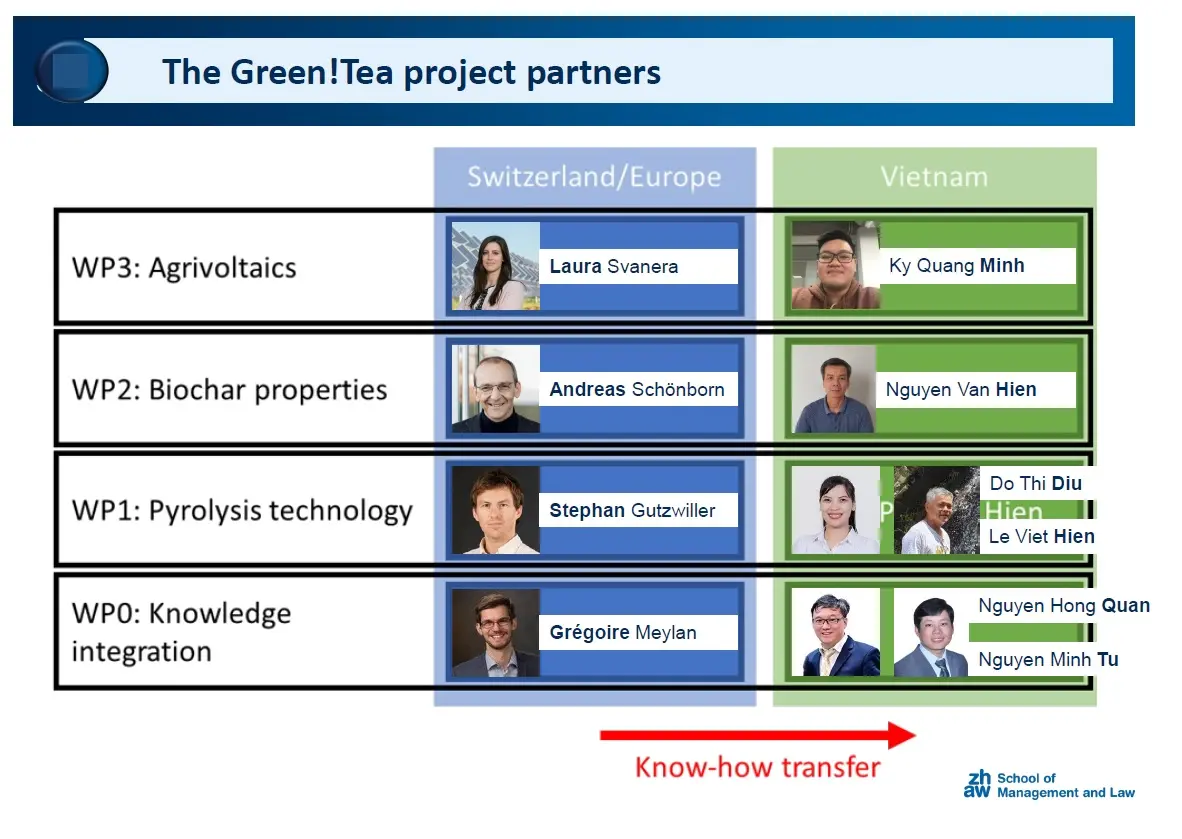
07 September 2023
Vietnam is one of the economic powerhouses of Southeast Asia. What can a suitable business model for Vietnamese tea farmers look like? How can tea-based agriculture contribute to carbon sequestration? And to what extent can tea production be optimized through agrivoltaic systems? Attend our latest IBSS event and learn more from the Swiss-Vietnamese Green!Tea team.
Further information
Sandeep Devanatha Pillai: «How did Milan emerge as the hub of the Italian fashion industry?»
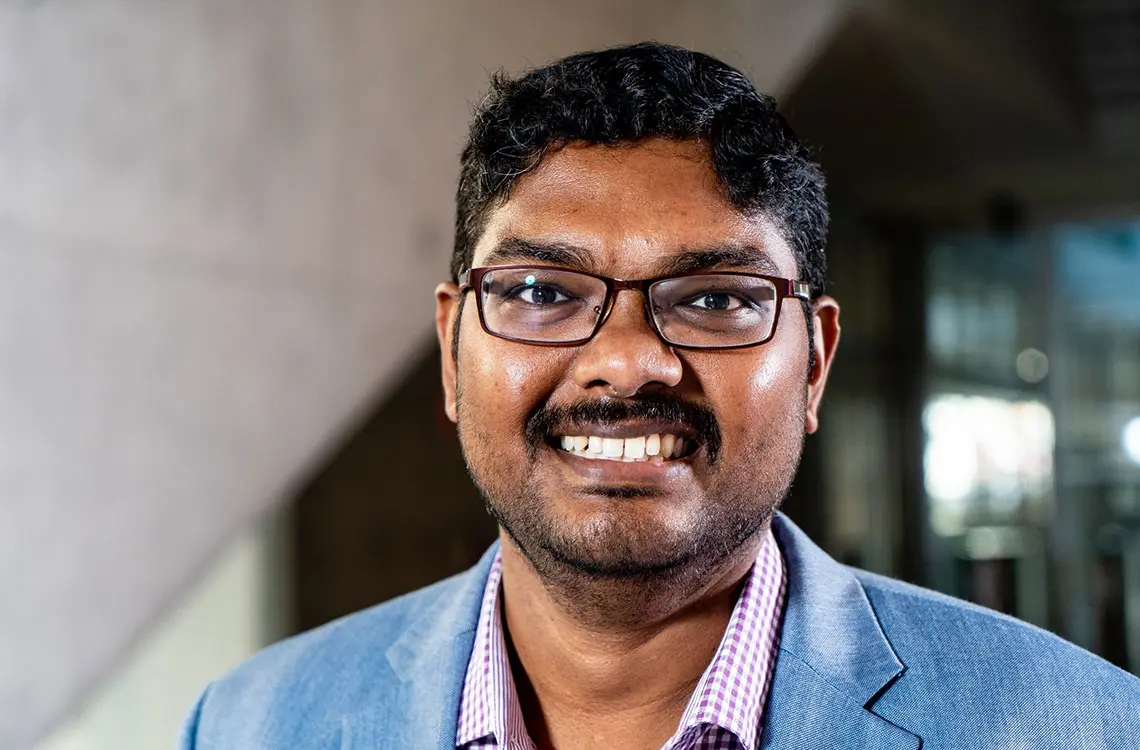
Dozierender: Sandeep Devanatha Pillai
Thema: «How did Milan emerge as the hub of the Italian fashion industry?»
Datum: Thursday, 29 June 2023
Zeit: 12.15 - 1.14 p.m.
Ort: Building SI O4.16 or online
Sandeep Devanatha Pillai explores how Milan emerged as the hub of the Italian fashion industry even though Florence, Rome, and Turin were better positioned. His historical study of the Italian fashion industry from the end of World War II to 1979 suggests that the emergence of Milan involved three necessary stages: customer preference discontinuities due to shifts in Italy's socio-political environment, the emergence of a new product category called Prêt-à-porter in Milan, and the consecration of Milan through the endorsement from relevant audience members for Prêt-à-porter, and through the institutionalization of Milan Fashion week. The study identifies a new mechanism for hub emergence and has implications for the literature on agglomeration and creative industries.
Sandeep Devanatha Pillai is Assistant Professor at the Department of Management of the University of Bocconi. He earned his PhD in Strategic Management & Entrepreneurship at University of Maryland. He has a Master in Business Administration from the University of Toronto, as well as a Master in Engineering from the University of Waterloo.
Dr. Mehdi Chowdhury: “On Money and Inflation”
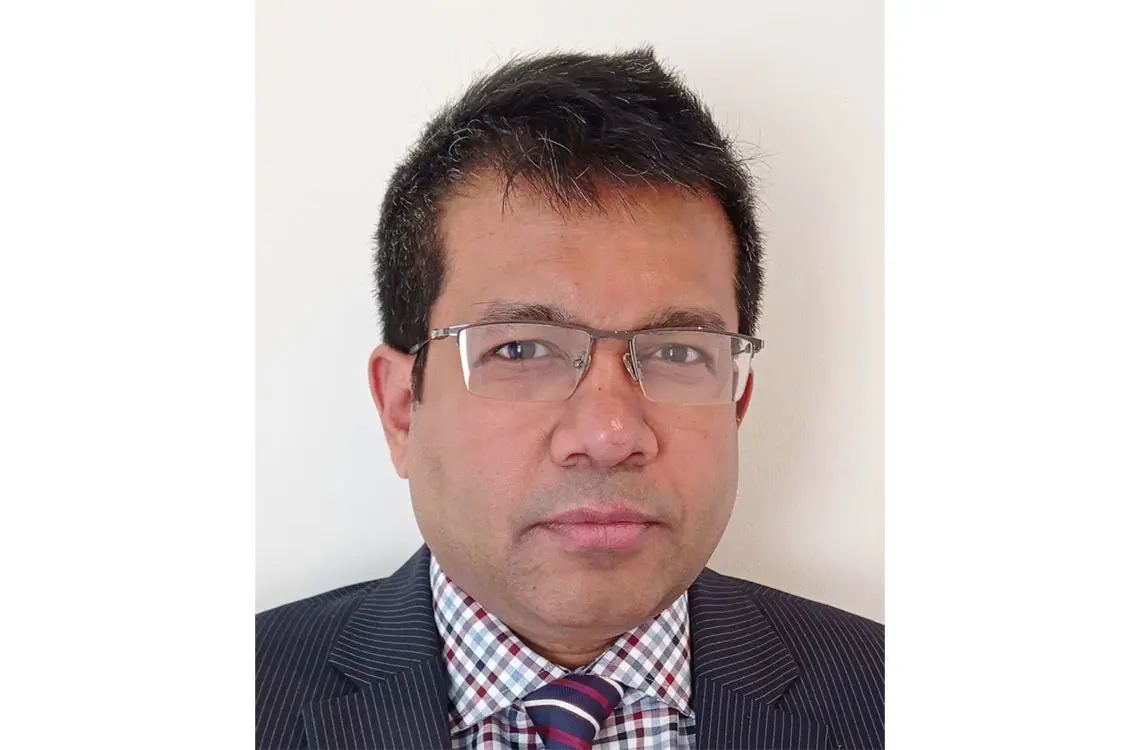
Lecturer: Dr. Mehdi Chowdhury
Theme: “On Money and Inflation”
Date: Thursday 15 June 2023
Time: 12.00 pm - 01.00 pm
Location: Building SI O4.16 or online
Dr. Mehdi Chowdhury presented his paper On Money and Inflation(PDF 424,8 KB) (PDF 425 kB) that states that there is a need to go beyond our usual understanding of money e.g. physically, electronically or virtually expressed in term of monetary units like dollar, pounds, gold coins, bitcoins etc. Rather money is best conceptualised as the ability of a person to obtain goods and services from another person. This ability may originate due the access of a person to the money in usual sense (e.g dollars, pounds) but also via force, social norms, mutual negotiation, altruism or just biological. As such anything with the ability to obtain goods and services from another person is money. In a transaction, it is not just one party but both parties possess money as the transactions takes place due to the ability of both parties. Money therefore always existed and will exist as long as human beings remain as a mutually dependent species, and consequently money is universal. However, money as the ability has no universal type or representation, and is dependent on the context creating that specific ability. Inflation accordingly is caused by various types of ability chasing goods and services including the ability acquired through the possession of usually regarded money as dollars, pounds etc. The article provides the explanation of the post covid price hike from this perspective and points that the demand on the time of individuals for creating ability for various consumption needs to be also taken into consideration when addressing the inflation and the cost of living crisis.
Dr. Mehdi Chowdhury is Deputy Head of the Department of Accounting, Finance and Economics, Bournemouth University Business School, UK. He joined as a Lecturer in Economics in September 2011 after obtaining my PhD from the School of Economics of the University of Nottingham and promoted to the post of Senior Lecturer and the Deputy Head. He also worked as a Teaching Assistant in Economics at the Department of Economics of the University of Bristol from 2009-2011.
Prof. Dr. Marco Clemente: “Fan or watchdog? Newspapers coverage of referees decisions in the Italian football”
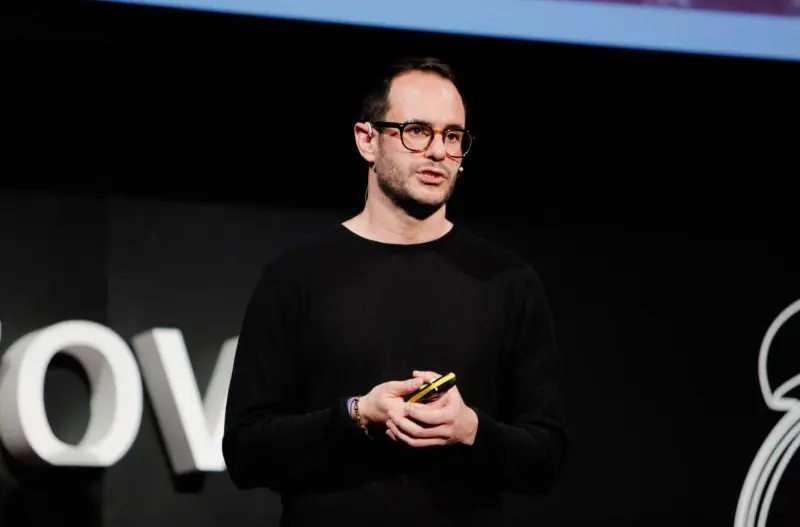
Lecturer: Prof. Dr. Marco Clemente
Theme: “Fan or watchdog? Newspapers coverage of referees decisions in the Italian football”
Date: Wednesday 26 April 2023
Time: 12.00 pm - 01.00 pm
Location: Building SI O4.16 or online
The media face the tension of satisfying the conflicting demands from multiple audiences: on the one hand, they want to meet the expectations of specific target groups, and act as partisan with the inevitable effect of being perceived as biased; on the other, given societal and professional expectations of impartial reporting, our they want to be credible, that is, to be perceived as impartial in what they report and how they evaluate it. Our goal is to understand how the media can balance credibility and partisanship, particularly the strategies they use to do so.
To this end, we examine how three daily sports newspapers cover referee decisions in the Italian football (soccer) major league. Our data and research design allow us to precisely estimate the different types of media bias and examine the effectiveness of three strategies that the media can adopt to balance partisanship and credibility: adjusting the level of attention (strategic silence and strategic overreporting), and leveraging ambiguity (about the rule of the games and of language). Specifically, we find that newspapers balance partisanship and credibility by reporting events that are in line with their partisanship orientation (referee decisions that favor the local team), which other newspapers do not report; by being less biased when rules are less ambiguous and by using a more ambiguous language when reporting events that are against their partisanship (e.g., referee decisions that harm the local teams). We do not find evidence that newspapers are strategically silent on events that are against their partisanship. By probing the strategies that the media use to resolve the tension between credibility and partisanship, our paper contributes to the literature on media studies, the strategic behavior of market intermediaries, and social evaluations in a multiple audience context.
Prof. Dr. Claudia Gabbioneta: “Intra- and Inter-Group Dynamics and the Market for Quality: Examining Mobility of Elite Professionals”
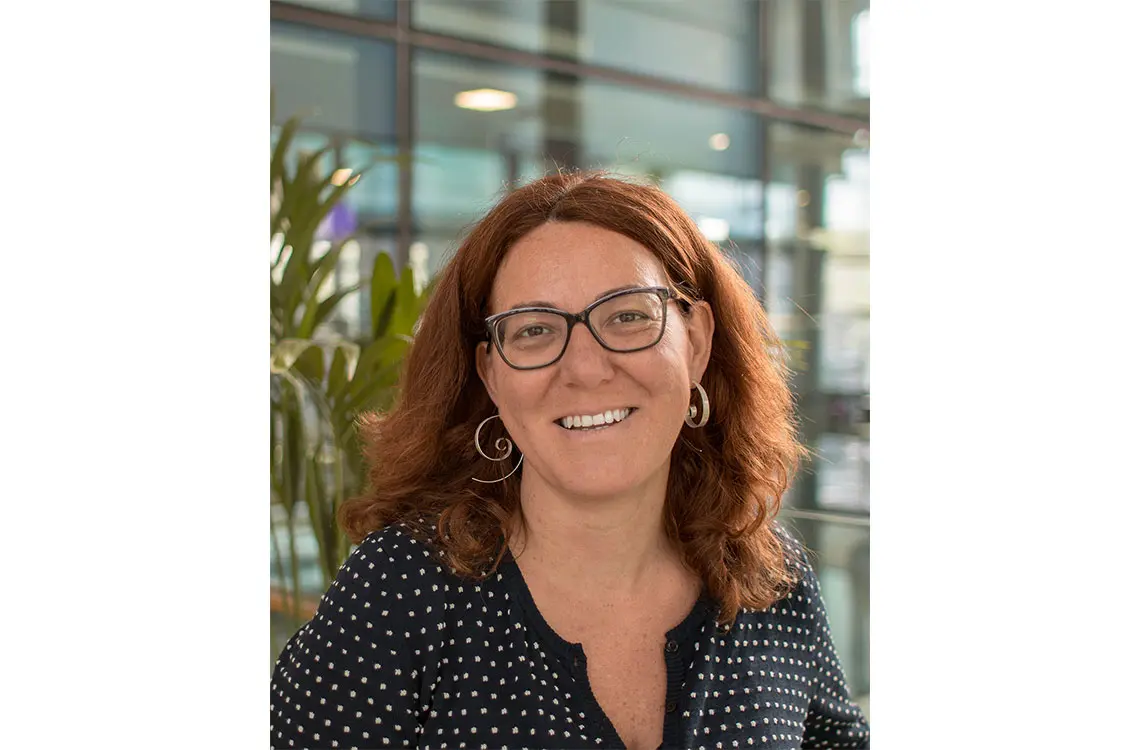
Lecturer: Prof. Dr. Claudia Gabbioneta
Theme: “Intra- and Inter-Group Dynamics and the Market for Quality: Examining Mobility of Elite Professionals”
Date: Wednesday 05 April 2023
Time: 03.00 pm - 04.00 pm
Location: Building SI O4.06 or online
Claudia Gabbioneta is Chair in Accounting and Management at University of York (UK). Her research interests include professions, organizational wrongdoing, and professional misconduct. Her work has been published in prestigious international journals, such as Accounting, Organizations and Society, Human Relations, Work, Employment and Society, and Research in the Sociology of Organizations. She is Senior Editor of Organization Studies and sits in the Editorial Board of the Journal of Management Studies and the Journal of Strategic Contracting and Negotiation.
Abstract
Knowledge-based organizations rely on the knowledge, skills, and relationships of their talented workers to build their competitive advantage. This creates incentives to recruit “the best and the brightest” professionals in their respective fields, with the expectation of improved performance. Prior research, however, challenges the assumption that recruiting talented workers necessarily improves group and firm performance, and has explored several key contingencies affecting this relationship. In this study, we investigate how intra- and inter-group factors moderate the relationship between recruiting a talented individual into a group and that group’s quality-performance. Using a longitudinal panel dataset of the largest UK corporate law firms between 2000 and 2017, we show that while recruiting an elite professional into a group (legal practice) generally reduces the quality of services provided to buyers, this negative effect is weaker when the average quality of the incumbent professionals in the group is higher, and stronger when the organization comprises a higher number of other high-quality groups. Our study contributes to the strategic human capital, employee mobility, and group dynamics literatures and has practical implications for managers.
Prof. Dr. Lorenzo Massa: “Sustainable Business Model Design”

Lecturer: Prof. Dr. Lorenzo Massa
Theme: “Sustainable Business Model Design”
Date: Thursday 30 März 2023
Time: 12.00 pm - 01.00 pm
Location: Building SI O4.06 or online
Prof. Dr. Lorenzo Massa is member of the World Economic Forum’s Expert Network for Innovation and Adjunct Professor for executive education at École Polytechnique Fédérale de Lausanne (EPFL), the International Academy of Sport Science and Technology (AISTS), Frankfurt School of Finance and Management as well as Bologna Business School (BBS). His research has been published in publications such as the Academy of Management Annals, the Journal of Management, and the Oxford Encyclopedia of Business and Management, among others. Lorenzo sits on the advisory board of different for-profit and nonprofit organizations and is a trusted strategy, innovation, and sustainability advisor to executives in companies across many industries. Lorenzo holds graduate degrees in mechanical engineering from the Dublin Institute of Technology (B. Eng.) and the University of Genoa (M.Sc. Eng.) and a Master’s and a PhD in Management from IESE Business School.
More information: Sustainable Business Model Design
Abstract
Business – from entrepreneurial startups to large multinational corporations – has a vital contribution to make to sustainable development. Companies are not only largely responsible for some of the non-sustainable conditions we are now facing, but they also have the knowledge, skills, and resources to creatively solve sustainability challenges and foster a more sustainable future. Business is a formidable engine of innovation.
But as long as we are confined by traditional ways of thinking about business models – often rooted in industrial age ideas about mass production and consumption – it will be impossible to fully unlock the potential of innovation to create sustainable value. Creating greater sustainable value requires us to rethink and redesign our way of doing business. In short, it requires us to develop sustainable business models.
Many entrepreneurs and corporate managers are well aware of this and have already started experimenting with new business models to boost sustainability. In some cases, these experiments had led to innovative business models that support the creation of sustainable value.
- What types of sustainable business models do we already have?
- What solutions do they offer to recurring environmental, social, and economic challenges?
- How can we turn these solutions into templates for action?
In this Keynote, Prof. Dr. Lorenzo Massa will progressively walk the audience to appreciate the role of business and business model design in relationship to sustainability and provide an answer to the offered questions.
Prof. Taran Patel: “Toward a generic framework of perceived negative manager/leader behavior: A comparative study across nations and private sector industries”

Lecturer: Prof. Taran Patel
Theme: “Toward a generic framework of perceived negative manager/leader behavior: A comparative study across nations and private sector industries”
Date: Wednesday 08 February 2023
Time: 12.00 pm - 01.00 pm
Location: Building SI O4.04 or online
Taran Patel is Full Professor in the People, Organization, and Society Department of Grenoble Ecole de Management (GEM). She earned her PhD in International Business from the Open University at Milton Keynes (UK) in 2006, and her Habilitation à Diriger des Recherche (HDR) from University of Rouen (France) in 2022.
Prof. Patel's teaching interests include: Cultural Issues in International Business, International Human Resources Management, Ethical and Cultural Issues in International Business, Organizational Behavior, Critical Perspectives in Leadership and Followership, and Qualitative Research Methods. At GEM, she teaches mostly at the post-graduate and doctoral levels. She also leads a certification program in 'Responsible Leadership and Followership in a Digital Era'.
Professor Patel has published academic articles in many internationally recognized peer-reviewed journals such as Organization, Management Decisions, European Management Review, Journal of Business Ethics, Journal of Organizational Change Management, and Business and Society. She has also published two books and edited a volume dedicated to the topic of cultural dynamics in international business.
Abstract
Reviewing three relevant streams of extant literature reveals a marked absence of a generic framework composed of a full range of negative manager/leader behaviors (from moderate to extreme) across sectors and countries, a void particularly detrimental to the effectiveness of management and leadership development (MLD) programs. To address this concern, we conduct a multiple cross-case/ cross-nation comparative analysis (MCCA) of data collected from our own 13 previous empirical replication studies (using the critical incident technique) of effective/ineffective managerial/leader behavior across nine culturally diverse countries and varied private sector industries, resulting in a comprehensive framework of perceived negative manager/leader behavior. Our generic framework is composed of five behavioral dimensions: inadequate functional behavior, unethical behavior, impersonal domineering behavior, depriving behavior, and closed/negative minded behavior, and lends support to the universal school of culture in business literature by showing that neither national culture nor sectorial specificities influence people’s perceptions of negative manager/leader behavior. It also stresses the importance of the mundane (as opposed to the glorious) in managerial/leadership work by revealing that employees’ perceptions of negative manager/leader behavior include not only conspicuously “bad” behaviors but also less conspicuous “poor” behaviors.
Ramona Demasi: “When the Private and the Public Self Don’t Align”
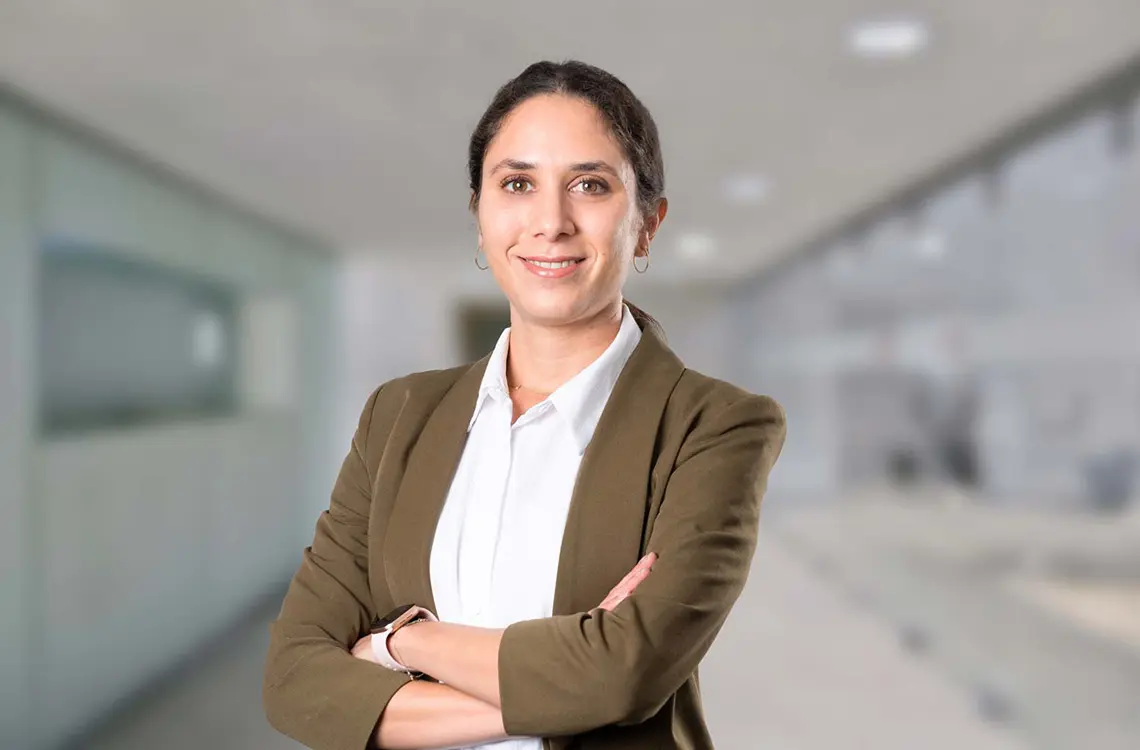
Lecturer: Ramona Demasi
Theme: “When the Private and the Public Self Don’t Align: The Role of Discrepant Moral Identity Dimensions in Processing Inconsistent CSR Information”
Date: Thursday, 08 December 2022
Time: 12.00 pm - 01.00 pm
Location: SI O4.04
Ramona Demasi is deputy head of the Institute for Strategic Management (Stakeholder View) at HWZ University of Applied Sciences in Business Administration Zurich and has worked as a research associate in research and consulting projects at the interface between business and society. Furthermore, she has recently finished her PhD studies at the University of Zurich. In her dissertation, she built the bridge between corporate social responsibility and individual well- and ill-being from a micro-level perspective.
Ramona`s talk is based on her joint publication with our colleague Prof. Dr. Christian Vögtlin (Co-Head Center for Corporate Responsibility) in the Journal of Business Ethics, which is among the top 50 journals listed in FT 50 Journal list.
Abstract
Inconsistent information between an organization’s corporate social responsibility (CSR) commitments and perceived CSR (in-)action is a big challenge for organizations because this is typically associated with perceptions of corporate hypocrisy and related negative stakeholder reactions. In this regard, Ramona will present a recently published Journal of Business Ethics publication, co-authored with Christian Voegtlin. In contrast to the prevailing corporate hypocrisy literature the article argues that inconsistent CSR information does not always correspond to perceptions of corporate hypocrisy; rather, responses depend on individual predispositions in processing CSR-related information. The results of the three studies show that individuals who symbolize - i.e., display - their moral identity to the public more than they internalize moral values react less negatively to inconsistent CSR information. Furthermore, this effect is amplified for extraverted but weakened for neurotic individuals. The article’s main contribution is to the corporate hypocrisy literature by providing insight into how individual predispositions matter in hypocrisy perceptions and the related individual-level positive or negative reactions to organizations.
Dr. Christian Stutz: “History as a methodology for business studies: A brief introduction and a Swiss case example”
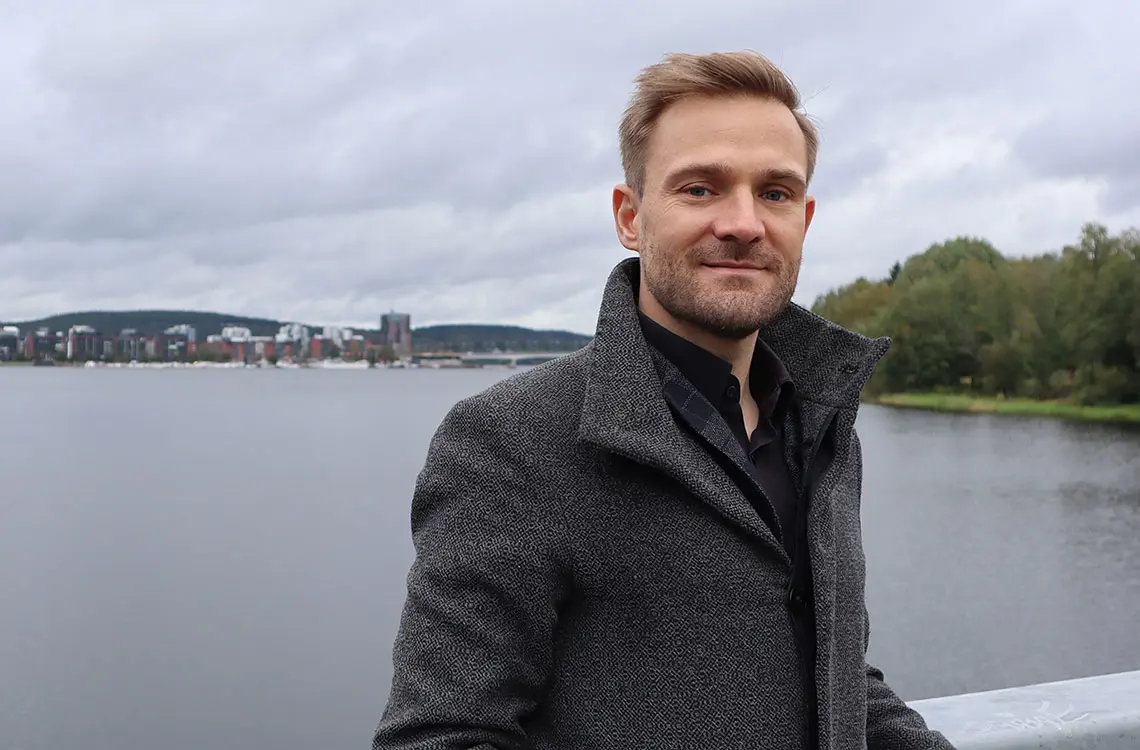
Lecturer: Dr. Christian Stutz
Theme: “History as a methodology for business studies: A brief introduction and a Swiss case example”
Date: Thursday, 01 December 2022
Time: 12.00 pm - 01.00 pm
Location: SI O4.04
In recent years, "history" has been established as a new approach and methodology in Organization Studies and has slowly gained a foothold in other disciplines, such as Business Ethics (Stutz & Sachs, 2018; Stutz, 2021; Phillips, Schrempf-Stirling, & Stutz, 2020; 2022). The increasing relevance attributed to questions of history is also shown by recent calls for papers for special issues in the International Business discipline, including for the Journal of International Business Studies and Journal of Management Studies.
Christian will briefly introduce the potential of historical research for Business Studies, and then present a recent paper (under review) as a case example.
The paper draws from a large-scale research project on economiesuisse (the Swiss peak business interest association) and Swiss migration history. It investigates the business association’s attempts to influence and change public views on work migration from the End of WWII to the Oil Crisis. In particular, the paper reveals how business actors use nationalism and national identity constructions to promote specific interests in institutional processes.
Biography
Dr. Christian Stutz is an Academy of Finland Postdoc Fellow, embedded at the Jyväskylä School of Business and Economics (Finland), and holds a Visiting Researcher position at the Copenhagen Business School (Denmark). He acts as an Associate Editor for Management & Organizational History, and is the co-founder of the webinar series HiMOS (History in Management and Organization Studies). In addition to his academic research, Christian is also passionate about engaging with business practitioners, as evidenced by his prior leadership of an Innosuisse project.
“How to measure competitiveness?”
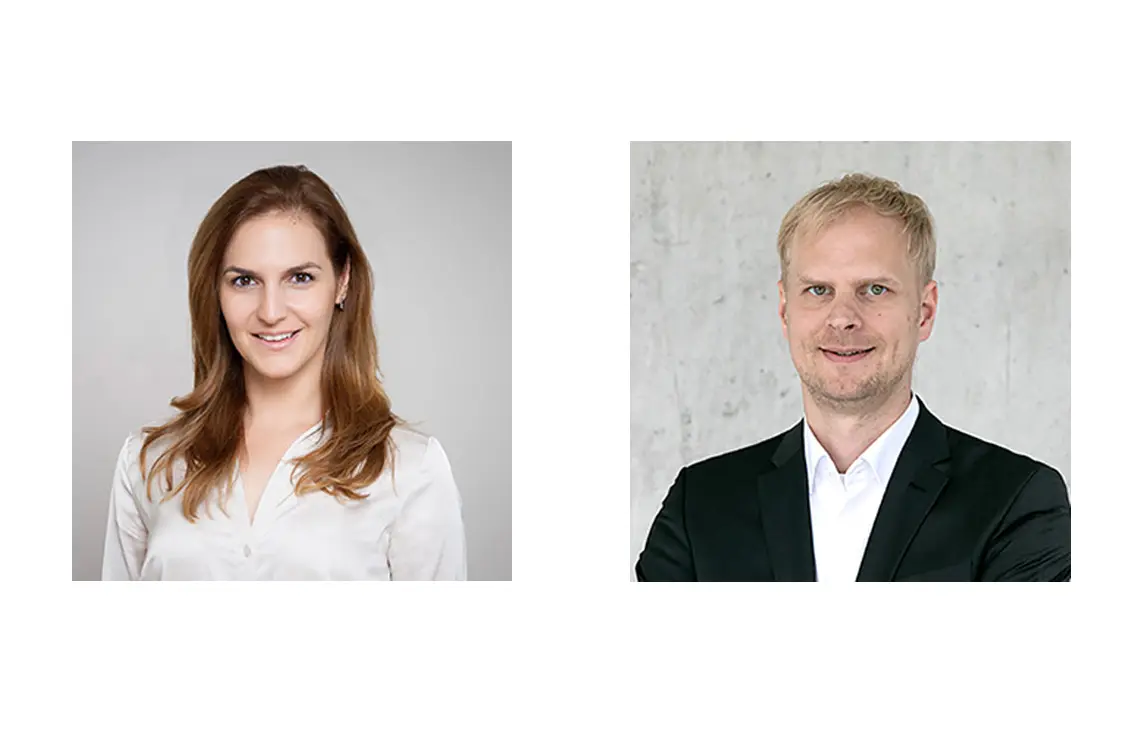
Lecturers: Dr. Siyana Gurova and Dr. Benedikt Zoller-Rydzek
Theme: “How to measure competitiveness?”
Date: Wednesday, 26 October 2022
Time: 12.00 pm - 01.00 pm
Location: SI O4.16
Mats Alvesson: “Doing interesting research. Producing novel research questions.”

19 September 2022
The presentation addresses how to do more imaginative and creative research. The focus on how to not be stuck in and simply reduce dominant assumptions, ideas and vocabulary, but challenge (well-picked parts of) these and come up with novel starting points for doing research. One aspect here is the re-consideration of images of various elements in the research process. The seminar is based on Alvesson & Sandberg: Constructing Research Questions (Sage 2013) and Re-imagining the Research Process (Sage 2021).
Mats Alvesson is one of the most distinguished social scientists in Europe and the world, globally recognised for his thought leadership. His work has been cited over 100’000 times on google scholar. His originality and influence are closely related to his innovative embrace and practice of multidisciplinarity, which has made him a leading scholar at the crossroads of leadership studies, organisation communication, knowledge work studies, organisation culture and identity and gender. He is most known from being an originator of Critical Management Studies, and his work on research methodology and theory building.
Dan Laufer: “Should CEOs of multinationals be spokespersons during an overseas product harm crisis?”
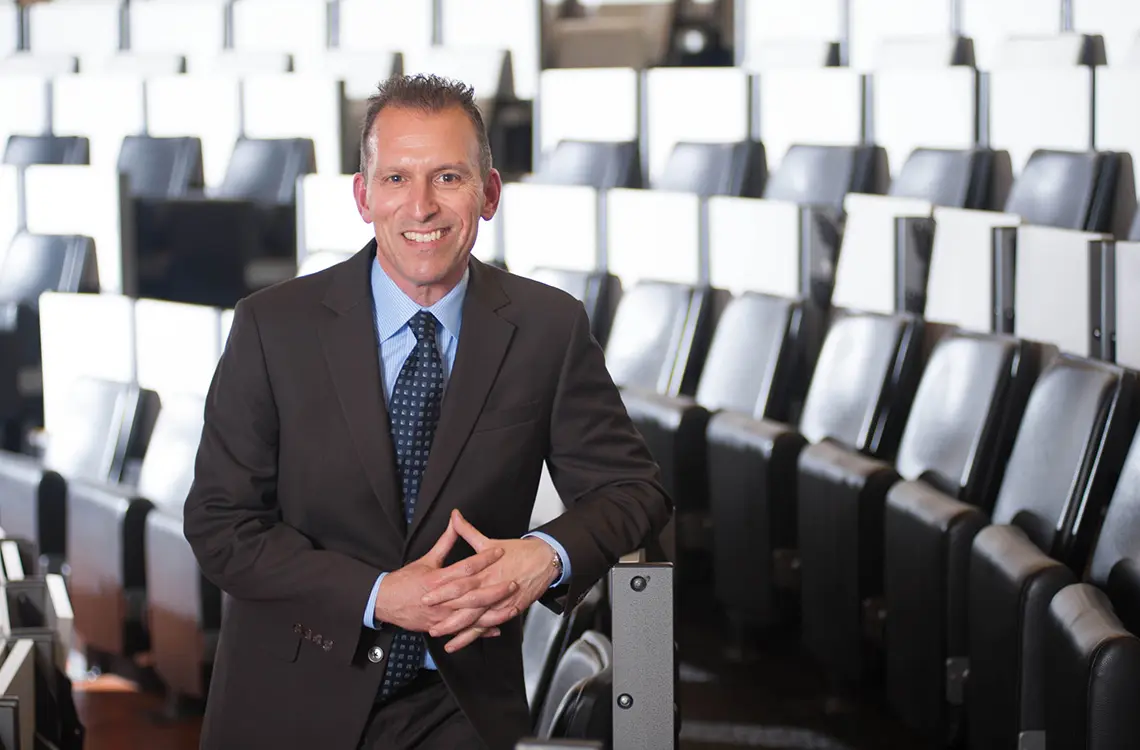
07 September 2022
Deciding whether to use the CEO as a spokesperson during an overseas product harm crisis is a very complex issue. However, multinationals can benefit from systematically analyzing factors related to the characteristics of the CEO, the nature of the crisis, and characteristics of consumers in overseas markets before arriving at a decision. I will discuss a framework incorporating these factors. The framework is useful to both companies in assessing whether to use the CEO during an overseas product harm crisis, as well as researchers in identifying areas for future research.
Daniel Laufer (PhD, MBA) is an Associate Professor of Marketing, and a former head of the school and member of the faculty management team (2014-2017) at Victoria University of Wellington, one of the leading universities in New Zealand. His primary area of expertise is Crisis Management, and his research focuses on crisis communications, and gaining a better understanding of how stakeholders react to crises. Dan was a faculty member at leading universities in the USA, and he also taught at highly ranked business schools in Germany, South Korea, Mexico, Canada, Israel and Austria. Dan currently serves as an Associate Editor for both the European Journal of Marketing and Business Horizons and is also on a number of editorial boards including Public Relations Review and Corporate Reputation Review.
Should CEOs of multinationals be spokespersons during an overseas product harm crisis? (PDF 81 kB)
Guilty by association: The risk of crisis contagion (PDF 224 kB)
Anastassia Obydenkova: “Sustainable Development Agendas of Regional Development Banks: The EBRD and the EDB”
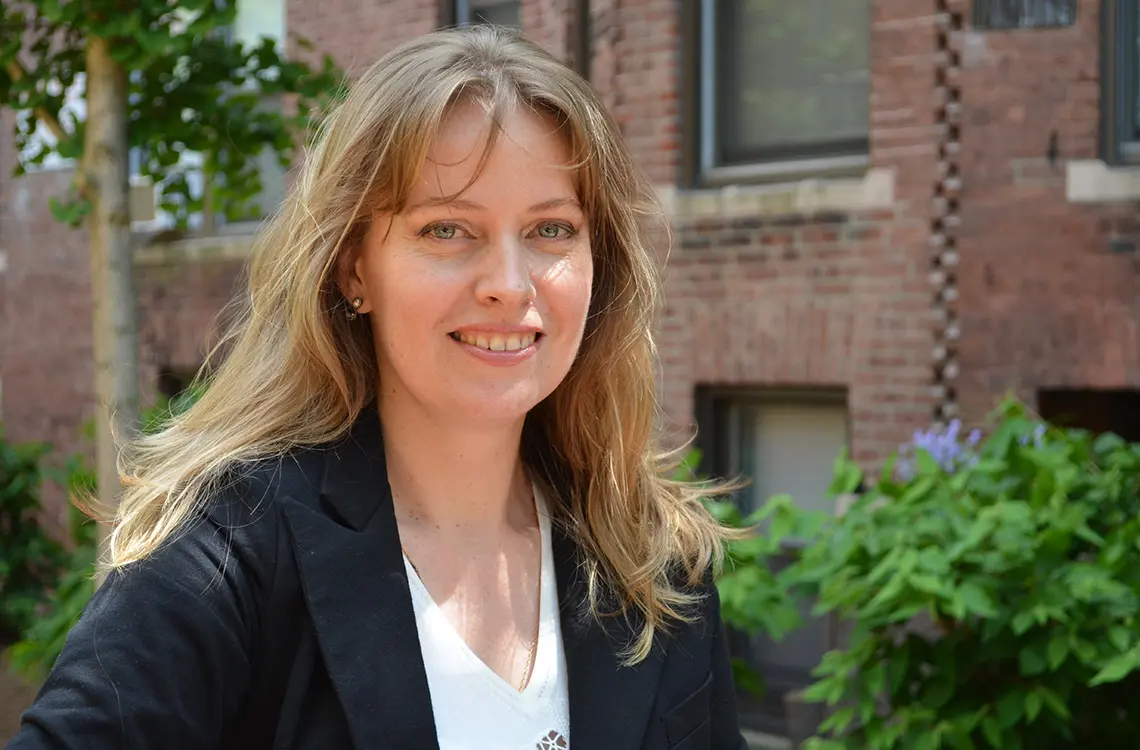
12 August 2022
Anastassia Obydenkova analyzes how the European Bank of Reconstruction and Development (EBRD) and the Eurasian Development Bank (EDB) approach sustainable development in their legal documents and social media. Unlike democracies, autocracies are driven by concerns of regime survival, but they often seek legitimacy through expressed commitments to global norms. While the EBRD has a clear and detailed environmental agenda, this is not so for the EDB, which appears unconcerned about legitimizing itself on this issue. Anastassia Obydenkova`s study advances our understanding of the likely role of these organizations in sustainable development, identifying areas for further research on global environmental challenges.
Sustainable Development Agendas of Regional International Organizations: The European Bank of Reconstruction and Development and the Eurasian Development Bank
More information (PDF 140,5 KB) (PDF 140 kB)